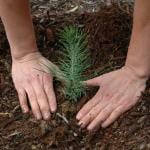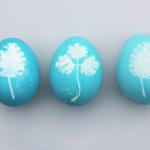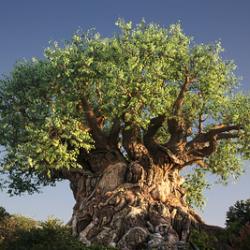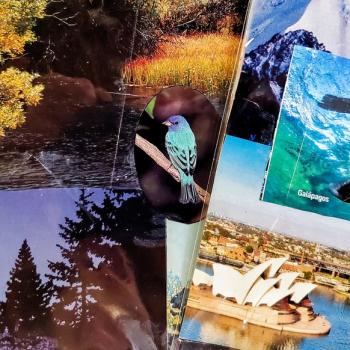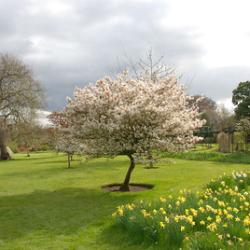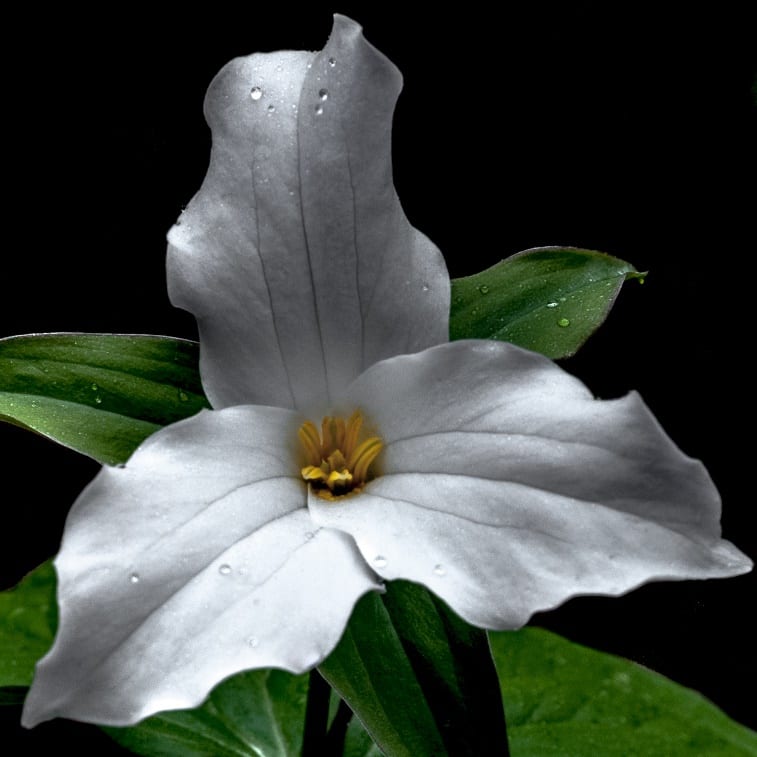
Dawn in Spring at Love Creek
A woodpecker’s rattle reverberates
through our woods, bounces
from sycamores to black cherries
and skitters around oaks.
A red-tailed hawk’s cry pierces
the teacup blue sky
and I remember your smile
long absent, home again.
A breeze ruffles this dawn,
carries on its wing—birdsong.
Curled under our deck
Roscoe dozes.
Yesterday that almost tame, curious
raccoon ambled through our yard
heedless of humans,
searching for leftovers or just searching.
You can’t smell this dawn
but look who is here!
Teams of white trillium
dance across the hillside
waving to the day.
These are a few of the things I see in spring.
We have gone from this:
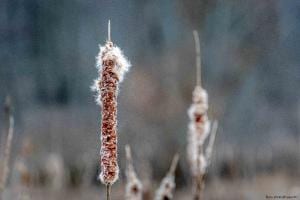
cattails stand erect
frozen in their snow garden
no way out
To this:
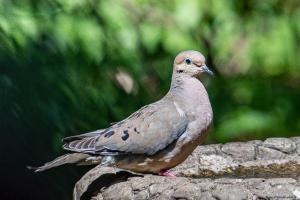
fawn-colored breast
taking sun—a dove
rests on the edge of spring
And soon to this:
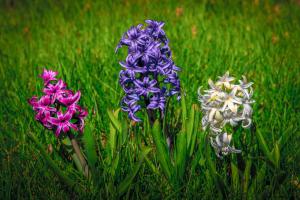
pink, yellow, purple
hyacinths shine through cold rain
a boy rides his bike
It is necessary to seek balance. At equinox, the length of day and night are equal. Life is so out of balance during this pandemic which keeps going on and on. And hope rising with every shot in the arm, and hope falling with every news report on new, more virulent variants. The power to mutate seems subversive, at least to humankind.
But we are a hardy lot and Japanese poet master Matsuo Bashō lends us some of his seventeenth-century wisdom:
Sitting quietly doing nothing, spring comes, and the grass grows all by itself.
Taking Bashō’s advice, sitting in my garden, I have seen pausing—gaze aslant—a wren in morning violets. She cocks her head, hunts for a bug. She has a family to feed.
I have seen a flock of birds flying in rain. In the moment, I imagine myself one of the flock:
being lifted being lifted all my brothers, my sisters
whoosh!
turn light mist space and space and space and space and
the steady wing beat-beat-beat-beat-together the wet rolls off
let’s duck it chuckle
colder wet on my head than my tail —oops!
turn—together now—
soar-left-wet in my eye—that better be rain!
a little heavier now wetter now could be cold
teenagers chattering they haven’t learned we don’t have to chitter
unless we want to
oo-o-o that was a deep dip almost too deep too dippy
did you see those wires—I hate poles—one brained my mom—may be coulda been
wondering at air so sweet up here
I wanna roost in trees by a lake tonight— hide the babies—
I heard an owl last night no moon cloudy
moon sleeps tuck me under your wing
Research shows that when flocks of birds migrate, individuals share the task of leading, so that every bird in the flock spends time drawing lift from a bird in front of it, much as race car drivers ride the draft of a car in front, thus conserving fuel. Birds look out for one another, the survival of the group being important.
Together, they prevail.
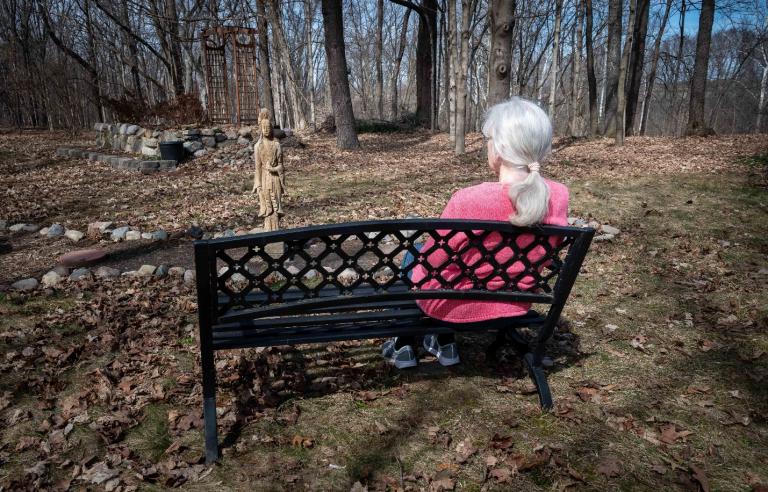
Blessed be,
Nan Lundeen
www.nanlundeen.com



